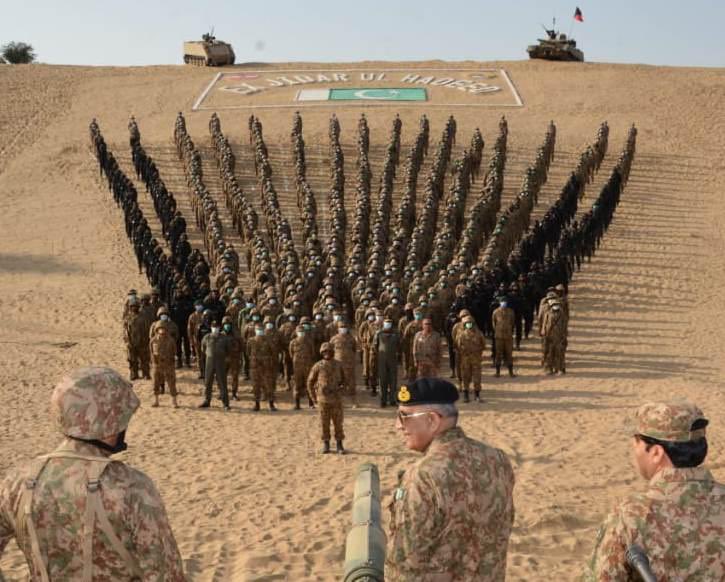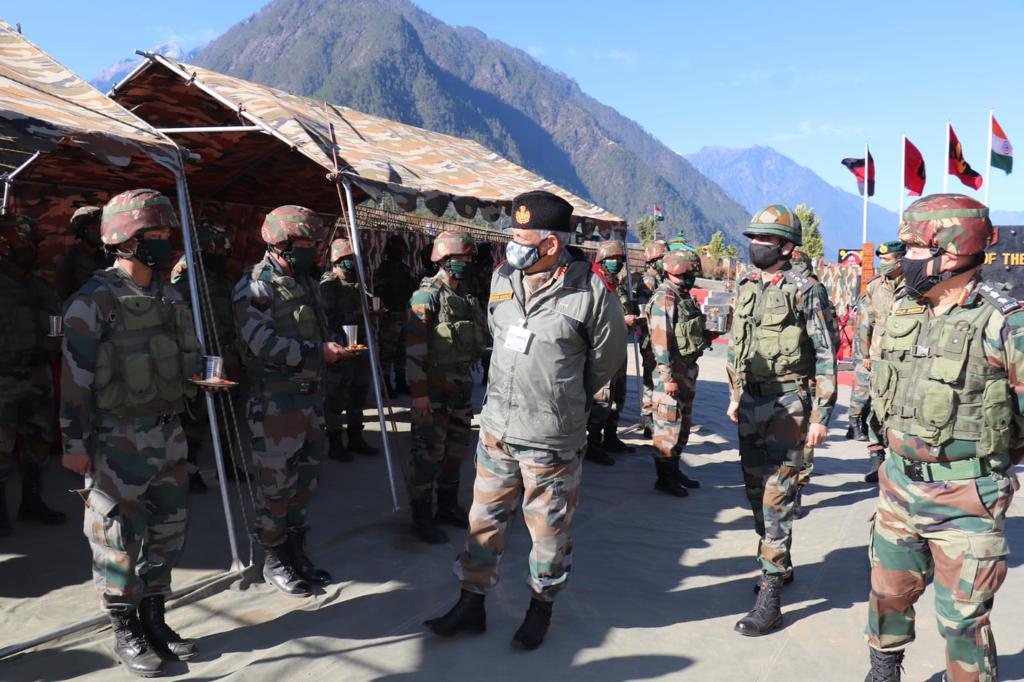China’s PLA is reportedly providing training to its ally, the Pakistani Army, in high-altitude warfare against a common adversary – the Indian Army.
Indian TV channel Times Now reported that the Chinese PLA recently conducted a 45-day training camp for Pakistani soldiers in the Chinar Bagh area of the Pak-administered Kashmir.
- At €7.8B, Why Indian Rafale Jets Are ‘Double The Cost’ Than Egyptian Rafales?
- Why Did Netizens ‘Mock’ Nigeria For Importing JF-17 Fighter Jets From Pakistan?
The training that began on May 1 was imparted by five PLA instructors. The Pakistani soldiers not just received training in tactics, but also physical conditioning, the report said.

The Pakistan Army has created a new military unit, recruiting people mostly from the province of Gilgit-Baltistan, to boost its capabilities of high-altitude warfare. Known as the Specialised High Altitude Warfare Battalions or SHAWBS.
Pakistan had deployed its Northern Light Infantry (NLI) during the 1999 Kargil war, which the former lost to India. It is believed that the NLI battalions will be incorporated into the SHAWBS and will be positioned along the Line of Control and the Siachen area.
‘PLA Lacks Experience’
Interestingly, India’s Chief of Defence Staff, General Bipin Rawat, has said that PLA does not have proper experience of fighting in the mountain terrain of the Himalayas.
“The Chinese deployment on the border with India has undergone a change, especially after the incidents in Galwan (in eastern Ladakh) and other areas in May-June 2020. Thereafter, they realized that they need to be better trained and better prepared,” Gen. Rawat told India Today TV.
Rustom-2 Drone: HAL On-Course To Manufacture India’s Most Ambitious, Powerful UAV Project?
That the Indian Army has superior mountain warfare skills were acknowledged even by Chinese experts. High-altitude warfare requires superior skills and higher degrees of physical endurance.
It seems that China is not only improving its own mountain-warfare skills but is also helping its all-weather ally Pakistan to acquire the necessary skills to counter Indian soldiers in the high-altitude terrains.

“The Tibet autonomous region is a difficult zone. It is a mountainous region. You need specialized training for this, in which our soldiers are very adept because we have a lot of mountain warfare training, we operate in mountains and continuously maintain our presence,” said CDS Rawat.
He also noted the Chinese soldiers are mainly enlisted for a shorter duration, and “do not have much experience of fighting in these areas and operating in this terrain”.
What Do Chinese Experts Say
Writing for Modern Weaponry Magazine, Chinese military expert Huang Guozhi last year stated, “the world’s largest and experienced country with plateau and mountain troops is neither the US, Russia, nor any European powerhouse, but India”.
“Mountaineering is an essential skill for almost every member of the Indian mountain army. To this end, India even recruited a large number of professional mountaineers and amateur mountaineers from the private sector,” Huang wrote, as cited by Hindustan Times.
Chinese Military Base In The Indian Ocean Near Maldives To Complete ‘String Of Pearls’ Around India?
“With more than 200000 troops in 12 divisions, the Indian mountain force is the largest mountain fighting force in the world,” he added. His comments came days before the Indian and Chinese soldiers had engaged in a violent clash in Galwan Valley on June 15, 2020.
India lost 20 of its soldiers, and China admitted to only four fatalities, that only after several months.
Huang mentioned how the Indian Army has developed and increased the size of the mountain division battalion since the 1970s and is also working to form a mountain strike force of more than 50,000 soldiers.
The Galwan Episode
The Indian Army is globally known for its mountain warfare expertise. This is mainly because a good number of troops are deployed at mountainous borders in the north and northeast and for this, they have to undergo rigorous high-altitude training.
Indian Army is one of the world’s largest and most-experienced mountain warfare forces. Recent clashes highlighted its soldiers' bravery. Yet China has one advantage: India will not fire the first shot even as PLA keeps encroaching. Excerpt from my essay: https://t.co/18rOFALx6L pic.twitter.com/8ULPQM4Zxs
— Brahma Chellaney (@Chellaney) June 29, 2020
Every year, at least 500 soldiers undergo training at the High Altitude Warfare School (HAWS) in Jammu and Kashmir’s Gulmarg. Here, soldiers and officers would acquire new techniques that would help them to carry out combat, search and rescue as well as surveillance operations in a harsh climate, The Eurasian Times reported earlier.
Kargil veteran and Maha Vir Chakra awardee Col. Sonam Wangchuk told The Indian Express that Indian troops are imparted training in basic and advanced training in mountaineering to make them equipped for mountain warfare.
According to Wangchuk, in high-altitude places like the Galwan valley, factors such as who is taking defensive positions and who is sitting on higher grounds are vital.
“Once troops are sitting on high ground, it becomes very difficult to dislodge them from there. In a place like Galwan Valley, which is absolutely barren, there is not much concealment. The soldier on high ground is absolutely stationary, which makes those on lower terrain easy targets; the enemy can pick them up one by one,” he added.
Experts also noted that the Indian Army capturing tactically important commanding heights on the top of the five posts to the south of Pangong Tso on August 29-30 tilted the balance in favor of India.
The Indian Army has a competitive advantage in mountain warfare owing to its experience of being deployed at high altitudes, they added.
Read More
- WATCH: Russian Su-30 Fighter Forces F-35 Stealth Jets To Retreat In Their ‘First-Ever Encounter’
- Despite World’s Biggest Navy, Why China Will Struggle To Match Indian Submarines In The Indo-Pacific?




